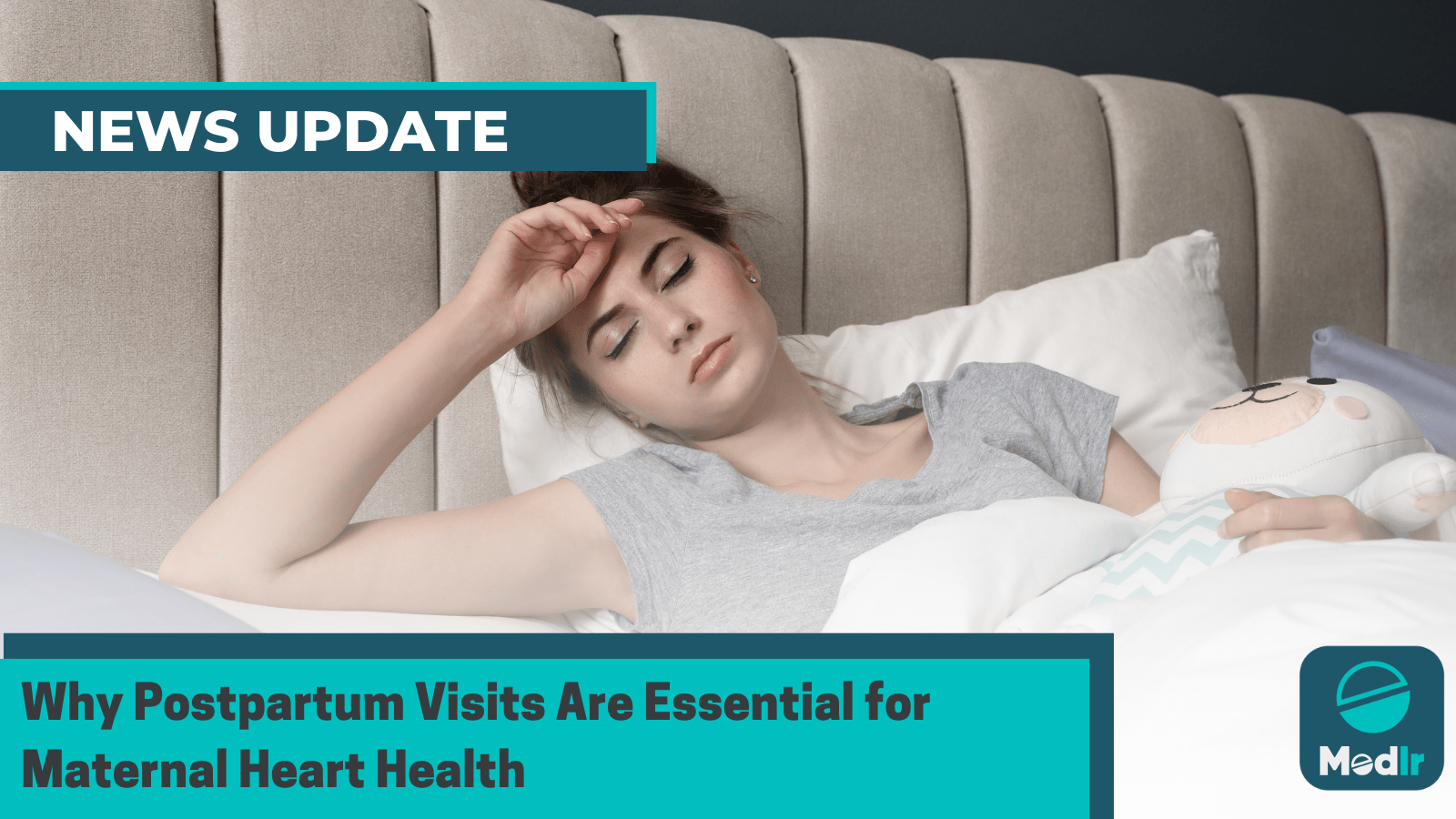Why Postpartum Visits Are Essential for Maternal Heart Health
Written by Shaveta Arora
Healthcare providers only counseled 60% of at-risk women on heart health during postpartum visits, leaving room for improvement in long-term risk reduction.

Healthcare providers advised 60% of women between 2016 and 2020 on optimizing heart health, including healthy eating, exercise, and weight loss gained during pregnancy, during their six-week postpartum visit.
Why Postpartum Visits are Important During the Fourth Trimester?
About 90% of US women attend at least one postpartum visit during the fourth trimester, prioritizing their health during the first year after pregnancy. This visit is crucial for adjusting to new life and returning to work, as they are already juggling other demands.
Lead author Dr. Natalie Cameron, instructor of general internal medicine at Feinberg and a Northwestern Medicine physician said -
"We need to find ways to take advantage of this prime opportunity when we have a captive audience of people who are already in the doctor's office, talking about their health at a critical juncture in life,"
Corresponding author Dr. Sadiya Khan, assistant professor of cardiology and epidemiology at Northwestern University Feinberg School of Medicine and a Northwestern Medicine physician said -
"It is hard to create new opportunities. The fourth-trimester visit is an already-ready moment to prioritize maternal heart health. Our data show that reports of overall counseling are low. For people who have risk factors, lifestyle counseling during this critical time is a first step to reducing long-term risk of heart disease."
Dr. Natalie Cameron further added -
"Health care systems must improve continuity of care after pregnancy and help women find clinicians who can provide preventive care. These can be obstetricians/gynecologists, primary care clinicians, or cardiologists, depending on the patient's needs and the clinician's expertise."
Counseling Inequalities: Postpartum Care and Heart Health Advice
Dr. Sadiya Khan highlights that only 60% of women remember counseling on optimizing heart health, despite potentially receiving more counseling. She emphasizes -
"I think it's important that we also prioritize implementation science research that identifies the best strategies for counseling to improve heart health, particularly in the first year after pregnancy," Khan said. "If counseling is provided but they don't remember it or it does not translate into improvements in heart health, it's not very effective."
Supporting healthcare transitions from pregnancy to postpartum is crucial for women's access to care. Cameron suggests extending postpartum Medicaid coverage from 60 days to 12 months to improve access for over 40% of U.S. women insured by Medicaid during pregnancy.